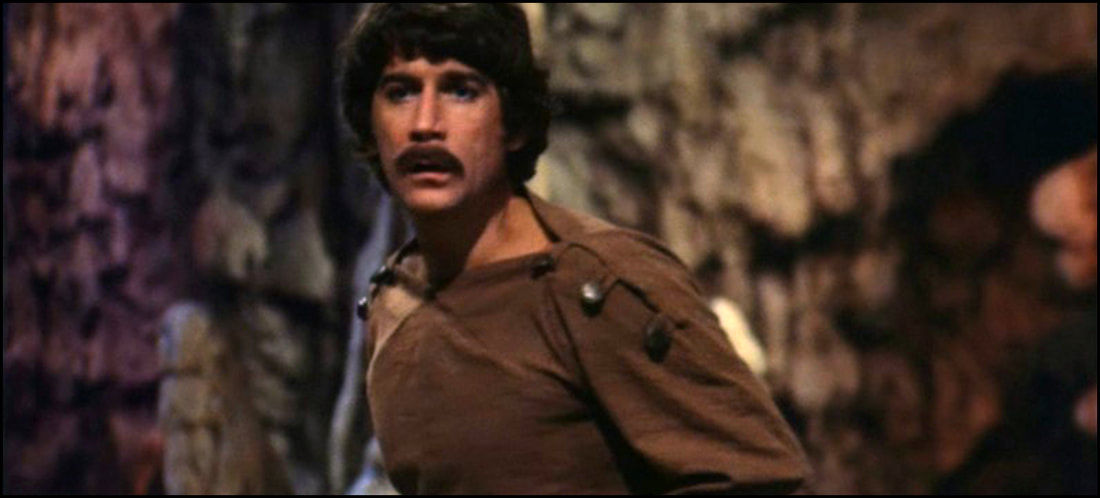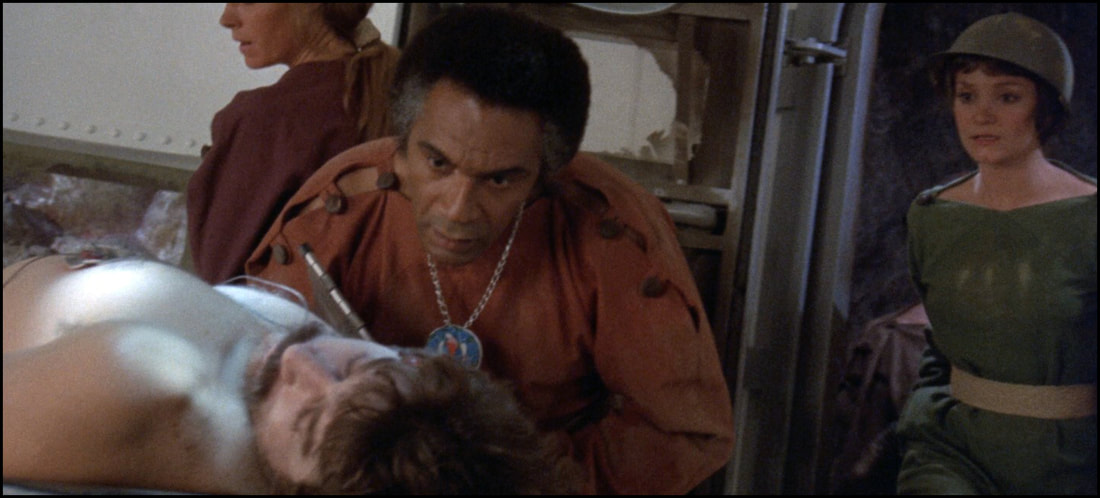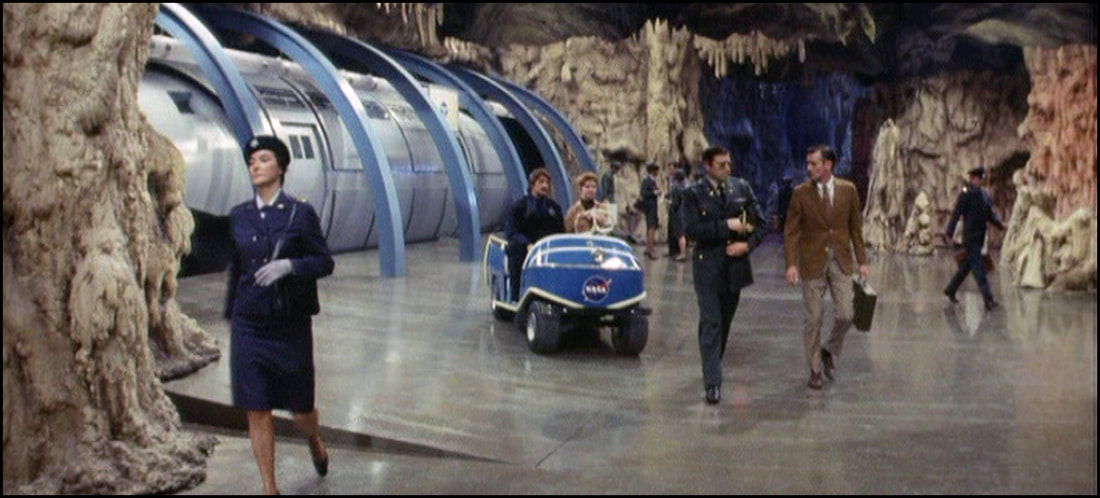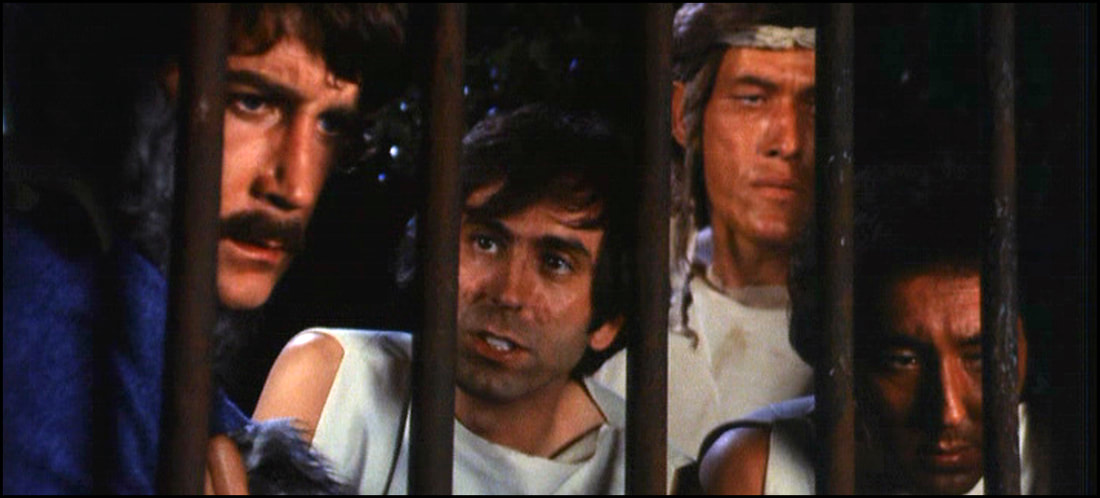Now, I’m going to bypass going into a full rundown of this person’s argument and supporting logic only to save all of us time. I will say that he didn’t mean it with any disrespect whatsoever, but the gist remained that outside of Star Trek – that space saga that’s stretched well into multiple decades – the writer and creator really hadn’t entered anything else into the entertainment lexicon. I naturally countered his position with some facts and figures he wasn’t as deeply aware of as I was, but – even after establishing the reality that there was a bit more to the award-winning fellow than meets the eye – the gentleman insisted that Roddenberry’s follow-up efforts never matched the grand tapestry of the Captain James T. Kirk original. Of that, there can be no doubt … and yet there fundamentally can be no denying that Gene’s ideas and ruminations about what lay ahead for all of mankind deserves more study. Readers of this piece might consider this just one such effort.
I’d seen bits and pieces of Genesis II (1973) over the years from a variety of outlets, and – quite frankly – several of the sequences were even horribly mislabeled, attributing footage to it that came from not one but two of the potential show’s spin-off attempts. Given how closely these three separate projects resemble one another in setting and characters, it’s easy to understand how that’s happened. But having watched both Genesis II and its direct descendant – 1974’s Planet Earth – in a single setting, I’m hoping to set the record straight with my thoughts on the first adventure, though I might have to clear up some of the confusion with a bit of focus on its somewhat misguided offspring.
Still, let me say categorically that I’ve never ever assumed Gene Roddenberry to be a one hit wonder. With Star Trek, Genesis II, Planet Earth, Spectre, Earth: Final Conflict, and Andromeda as feathers in his proverbial cap, he was anything but.
(NOTE: The following review will contain minor spoilers necessary solely for the discussion of plot and/or characters. If you’re the type of reader who prefers a review entirely spoiler-free, then I’d encourage you to skip down to the last few paragraphs for the final assessment. If, however, you’re accepting of a few modest hints at ‘things to come,’ then read on …)
“A scientist who has been preserved in suspended animation wakes up to find himself in a primitive society in the future.”
As best as I understand my history of Roddenberry’s career, he had taken a much-earned sojourn from writing and producing, spending some time away from the hustle and bustle of the entertainment industry. But inspiration strikes in the least likely places, and – while on vacation – he came up with the idea for an all-new Science Fiction and Fantasy show. He had already proven with Star Trek that audiences liked such trips into tomorrow, and he latched upon the idea of one man awakening from suspended animation only to find that mankind had once again destroyed itself. This man, however, would make it his life’s mission to help put things right once again, and Roddenberry named this creation Dylan Hunt.
Now … buckle up, kids, because this is where it does get a bit confusing.
Any conversation involving Genesis II and its central hero – Dylan Hunt – might necessarily require some discussion surrounding Planet Earth, Roddenberry’s second attempt to harness the ideas of Genesis and turn it into a project befitting a weekly broadcast akin to Star Trek. (In case you missed it, then let me say that the first production didn’t exactly emerge as a barn-burner; and the man stuck to his guns with a loose sequel geared more toward what television executives expected of the day. He’d rather famously been given a second chance with Star Trek’s pilot, so this wasn’t unheard of when it comes to Roddenberry.) Furthermore, some of you true blue genre elites might be scratching your head over the realization that ‘Dylan Hunt’ was a name Roddenberry used yet again – along with similar concepts – in crafting his serialized space saga Andromeda (2000-2005). That incarnation saw star Kevin Sorbo in the role of rebuilding a galaxy-spanning ‘federation of planets’ that went by the name of the Commonwealth. Suffice it to say, these ideas stayed in the forefront of Roddenberry’s fertile imagination, and who could blame the man for sticking with what he had done so uniquely well over the years?
For the purposes of this review, however, I’m going to now disconnect from any significant comparisons between these similar properties. I’ll likely reference Planet Earth again, but I think readers will understand why when I do.
As tends to happen in Science Fiction television shows, civilization has collapsed; and mankind has splintered into various factions. In the United States, the two major factions – the PAX and the Tyranians – remain in conflict; and – early in the film – Hunt is uncertain as to who has what remains of our planet and its inhabitants’ best wishes in mind. Initially, the scientist sides with the lovely Lyra-a (Mariette Hartley), a Tyranian spy who helped the PAX people by nursing him back to health; but in the second half he discovers that her ulterior motives might inadvertently gives her people a technological superiority meant to end the conflict but could decimate all survivors with a nuclear blast.
There’s a bit more to the story, but as this summarizes the main conflict, I’ll leave it there. Slowly, Hunt realizes that the Tyranians are truly Fascists at heart, he joins with the growing slave rebellion by arming them with pain-dispensing rods (like today’s tazers) and eventually rigging a power plant to destroy their city. So what audiences are treated to with Genesis II – as they had been previously with so many episodes of Star Trek – were discussions of politics and oppression, of justice and compassion, and of personal liberty squared off against the collective good. To fully side with the PAX people in the last reel, Hunt must agree to never take another human life as their code of conduct prohibits murder under any and all circumstances, even in the face of necessity. It’s safe to suggest that, as strongly as morality was put under the microscope by the crew of the Starship Enterprise, Roddenberry planned much the same with Genesis II, and why shouldn’t it? That formula worked so well the first time it was applied that a thematic sequel could work equal wonders.
On its own merits, Genesis looks and feels very much like it could’ve existed in the fictional downtime rarely explored between Earth’s collapse (in Star Trek time) and the foundation of Starfleet and the Federation. Scripts and stories in that big universe often suggested that our planet went through some very dark decades before emerging into the light, and maybe this is the vein Roddenberry was trying to tap with this script. Arguably, Planet Earth – the aforementioned follow-up to the telefilm – even pushes the Trek formula further (it essentially recasts the scientist Hunt into the action figure format emboldened by Captain Kirk himself), but we’ll never know for certain as no subsequent series ever materialized … at least, not in this fashion.
Genesis production standards are quite good. The sets for the telefilm’s subterranean shuttles are wonderfully elaborate for the time – apparently, mankind existed long enough to manufacture a subway-style system spanning the nation, and this remaining technology is what gave the PAX people their strategic advantage over other developing cultures. Once the story moves to the Tyranian city, I could argue that it feels even more like a 1960’s Star Trek spin-off as characters are garbed in tunics, jumpsuits, and the like, many of which look exceedingly similar to those worn by Trek guest stars. What can I say? Even in the future, “it’s a small world after all.”
Without question, I think the greatest reason any person should take a gander at Genesis II is that there’s so much of what consumed Roddenberry’s ideals on full display. As I’ve mentioned, it isn’t difficult at all to see how closely this story aligns with the intellectual right stuff given amble disclosure in Trek and beyond, so the storyteller’s fingerprints are all over this. Precisely where he could’ve taken this concoction might inevitably be little more than conjecture, but there’s no discounting its lineage. This sprang from the recesses of a mind that had already put great thought into such matters, and I think it deserves to be studied by not only Trek enthusiasts but also by Science Fiction aficionados everywhere. It may not be perfect … but it’s most definitely Roddenberry.
Genesis II (1973) was produced by Norway Productions and Warner Bros. Television. The film is currently available on DVD under the Warner Archive imprint.
Mildly recommended.
While imperfect and extraordinarily similar to several other Science Fiction franchises and stories, Genesis II occasionally looks and sounds interesting, and yet it never quite ‘sticks the landing.’ There’s far too much nebulousness to the whole affair – character alliances, the wider state of the world outside, and just how some technology survives yet much else doesn’t – and a greater cohesive whole might very well have inspired both studio and network suits to carry it forward in whatever fashion they deemed deliverable. Roddenberry purists deserve to give it a spin, as there’s plenty in there that the storyteller has touched upon again and again – even with some familiar faces – and they’ll no doubt delight themselves with thoughts of ‘what could’ve been.’
-- EZ





 RSS Feed
RSS Feed